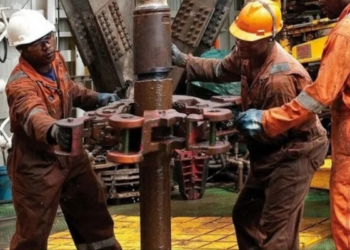The Nigerian National Petroleum Corporation (NNPC) declared open on Tuesday, August 11, bids by interested private investors to repair the pipelines and depots that are serving the refineries.
These pipelines, built almost 4 decades ago, are very critical in the successful movement of crude oil to the country’s 3 refinery complexes located in Port Harcourt, Kaduna and Warri, and the subsequent movement of the finished petroleum products to the consumers.
The pipelines, which according to NNPC are in dire need of comprehensive repairs, have experienced years of incessant theft and vandalism as well as ageing.
READ MORE: Refinery operations still loss-making: Capacity utilisation of the four refineries still 0%
This project is expected to be operated on a public-private partnership basis as the bidders are expected to finance and execute the project, then operate for an agreed number of years before transferring back to the NNPC. In other words, the bidders for the extensive repairs of these pipelines would have to finance them independently and operate for a defined period in order to recover their investment costs with throughput tariffs.
It must be noted that this model is similar to the one that had been in place by the state oil giant for the refineries. The NNPC had also announced plans to get private investors to invest in the repair of the 3 refineries on a repair and operate basis, as they do not want to be involved in the management of these refineries.
The NNPC Group Managing Director, Mele Kyari, had said that the ultimate plan for these refineries was to allow it to run on the LNG model, where the shareholders would be free to decide on the fate of these refineries going forward.
READ MORE: NNPC states why it failed to fix refineries, to build 200,000 capacity refinery
The refineries, which have only run sporadically, were shut down by NNPC earlier this year while awaiting repairs and upgrade. These 2 projects are expected to be handled separately according to information made available on Tuesday.
In addition, the new pipelines would need intrusion detection systems, as well as deep burial, to stop theft or vandalism. The deadline for the submission of these bids is due by September 18.



















We support the I dear sir, and more over our company are into welding and fabrication engineering pipe line and storage construction and others we interested to participating sir, thanks, with best regards
We will like to participating in the area of welding and fabrication work pipe line and storage tank, wish is our field of specialisation thanks, with best regards